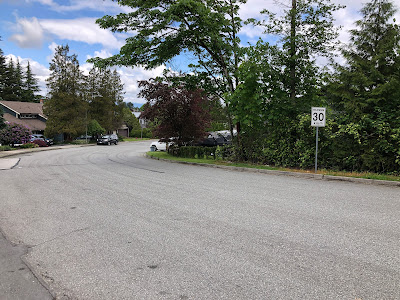I'm excited about Langley City's recently launched Urban Forest Management Strategy. Trees provide various services to our communities, such as reducing air pollution, providing shading, lowering temperatures during the summer, providing habit for wildlife, and creating attractive urban areas.
Langley City's Urban Forest Management Strategy will set short- to long-term goals to grow and manage the forest within our ten square kilometres, including on private and public property.
The strategy will have the following outcomes:
- Understanding the current condition of the urban forest.
- Addressing current challenges facing the urban forest.
- Development of a vision for the future.
- Establishment of objectives and targets.
- Development of guidelines for the implementation of the strategy.
As a first step, Langley City Council received a report card on the current condition of our urban forest. Langley City has a poor rating on a scale of poor, fair, good, to optimal.
The table following shows the report card criteria.
| Criteria | Rating |
|---|---|
| Planning | |
| General awareness in the community and across City departments of the value of the urban forest | Fair |
| Cooperation between departments and agencies on Urban Forest management implementation | Good |
| Clear and defensible goal for urban forest canopy cover | In Progress |
| Tree canopy cover relative to established canopy targets | Insufficient data |
| Municipality-wide urban forest management plan | In Progress |
| Municipal green infrastructure asset management | Fair |
| Municipal-wide biodiversity or greenspace network strategy | Good |
| Municipal urban forest management program capacity | Fair |
| Funding levels for relative to expected urban forest management outcomes | Fair |
| Planting | |
| City tree planting program and planting targets | Fair |
| Development requirements to plant trees on private land | Poor |
| Streetscape specifications and standards for planting trees | Good |
| Equity in planting program delivery | Poor |
| Forest restoration and native vegetation planting | Fair |
| Stock selection and procurement in cooperation with nurseries | Fair |
| Ecosystem services targeted in tree planting projects and landscaping | Fair |
| Managing | |
| Tree inventory | Poor |
| Knowledge of trees on private property | In Progress |
| Natural areas inventory | Good |
| Age diversity in the inventory (size class distribution) | Insufficient data |
| Species diversity (public tree inventory) | Insufficient data |
| Species suitability for local area | Insufficient data |
| Publicly owned tree condition | Poor |
| Maintenance of intensively managed trees | Fair |
| Extreme weather response planning | Poor |
| Tree risk management | Poor |
| Pest and disease management | Fair |
| Waste biomass utilization | Fair |
| Tracking of operational carbon footprints and urban forest carbon-cycle balance | Fair |
| Protection | |
| Regulating the protection and replacement of private and public trees | Fair |
| Regulating the conservation of sensitive ecosystems, soils or permeability on private property | Good |
| Internal protocols guiding tree protection or sensitive ecosystem protection | Fair |
| Standards of tree protection and tree care observed during development | Fair |
| Cooperation with utilities on protection of public trees | Fair |
| Partnership | |
| Citizen involvement and neighbourhood action | Fair |
| Involvement of large private and institutional landholders | Fair |
| Urban forest research | Fair |
| Regional collaboration | Fair |
We have some work to do, and the Urban Forest Management Strategy will guide that work. The City has a survey about urban forest management you can take and an upcoming open house. Please visit Langley City's website for more information about the survey and open house. City staff expect to complete the Urban Forest Management Strategy in early 2024.


No comments:
Post a Comment